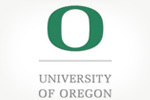Project Profile
IGERT: Interdisciplinary Materials Program to Accelerate the Transition from Student to Scientist
University of Oregon at Eugene
Abstract
This Integrative Graduate Education and Research Traineeship (IGERT) program offers a nationally unique, comprehensive package of new and tested approaches to graduate education in materials chemistry and physics. It is designed to prepare the next generation of graduate students for the challenges of an increasingly interdisciplinary and rapidly evolving research… more »
This Integrative Graduate Education and Research Traineeship (IGERT) program offers a nationally unique, comprehensive package of new and tested approaches to graduate education in materials chemistry and physics. It is designed to prepare the next generation of graduate students for the challenges of an increasingly interdisciplinary and rapidly evolving research and development arena. The research and education activities of this IGERT program are unified by the study of structure/property relations in the increasingly important class of materials that have properties dominated by critical length scales that lie between those of bulk materials and molecular species.
Three established research thrusts are aimed at developing and understanding such materials: (1) the synthesis and properties of nanolaminates and functionally graded materials; (2) the preparation and study of electronic and optical meso- and nano- structures; and (3) the design and investigation of molecularly engineered assemblies and materials. Each of these on-going research topics provides outstanding opportunities for interdisciplinary graduate training because the chemistry, physics, and engineering of short length scale systems are closely intertwined. A diverse group of students and scientists from the University of Oregon, Oregon State University, Pacific Northwest National Laboratory, Portland State University and a range of other industrial and academic partners are brought together in an effort to enhance graduate training and materials research.
Five key program elements interspersed in the graduate program are designed to accelerate the transition from student to scientist. These include summer immersion programs, laboratory rotations in chemistry and physics at the participating institutions, a Technology Entrepreneur Fellows program teaming IGERT trainees with MBA and law students, regular research thrust seminars, and internships in industry, academia, or a national laboratory. These program elements are designed to accelerate the transition from passive learner to scientist by training students in group-based problem solving, helping students acquire technical and time management skills and challenging them to complete a project related to a research thrust area. The program elements described above are expected to decrease time to degree, expand research opportunities through collaborations with the participating institutions, and enhance recruitment of excellent students including members of groups underrepresented in science and engineering.
The connections established by the program will have a substantial impact on the Pacific Northwest region in particular, through the education of a workforce commensurate with its large concentration of high-technology industry. The research and education collaborations formed will strengthen the scientific basis to build nanoscience infrastructure accessible to academic and industrial partners within the framework of the statewide Oregon Nanoscience and Microtechnologies Institute. The IGERT educational program is integrated with other NSF program such as GK-12 and REU.
IGERT is an NSF-wide program intended to meet the challenges of educating U.S. Ph.D. scientists and engineers with the interdisciplinary background, deep knowledge in a chosen discipline, and the technical, professional, and personal skills needed for the career demands of the future. The program is intended to catalyze a cultural change in graduate education by establishing innovative new models for graduate education and training in a fertile environment for collaborative research that transcends traditional disciplinary boundaries. « less
Contributions[?]
Project members' contributions to the library and showcase are listed here.
See All 41 Contributions »






